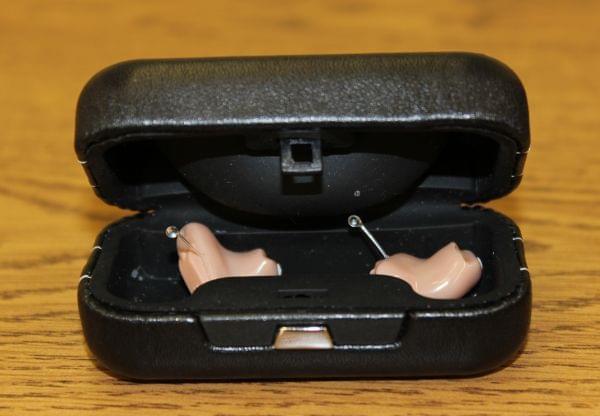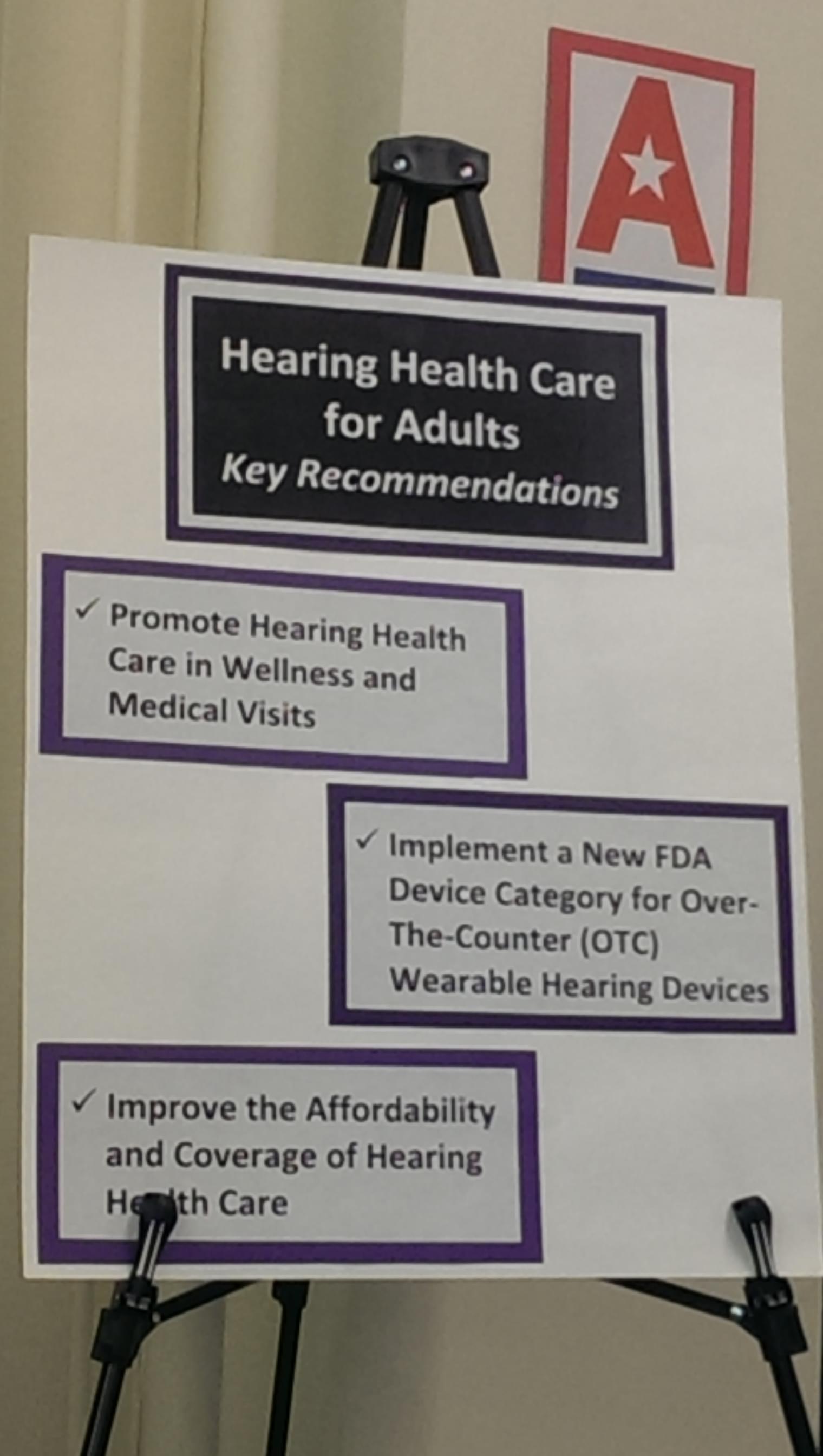Health Care Advocates Seek Better Access To Hearing Aids

A set of modern hearing aids, which can cost anywhere from $1,500 to $4,000 each. Jeff Bossert/Illinois Public Media
A new report says a large majority of those age 50 and older in the US with hearing loss don't use hearing aids. Champaign County Health Care Consumers says the primary reason is most seniors living on fixed incomes can’t afford the devices, which cost thousands of dollars.
Medicare doesn’t cover the cost, and state-sponsored insurance only covers less expensive options.
That’s the case for Jude Love of Champaign. A member of the group's Medicare Task Force, she often has to remove the hearing aid she uses when surroundings are too loud.
She says hearing loss can prove stressful, and result in lifestyle changes.
“I know I find my daughter saying, mommy, you already told me that, so I don’t know if I forgot, or if I just did not hear her," she said. "And because if you can’t involve in community in giving back in society, if you can’t hear, then you’ll find yourself staying home.”

Some of the recommendations made Thursday to increase access to hearing aids made by Champaign County Health Care Consumers.
The Health Care Consumers group is calling on providers to create a program for affordable hearing aids,and backs national legislation to repeal Medicare’s exclusion of hearing aids and hearing aid exams. The Medicare Hearing Aid Coverage Act (HR 1653), sponsored by Michigan Democratic Congresswoman Debbie Dingell, was introduced last year. The consumers group wants Republican Congressman Rodney Davis of Taylorville to support the legislation.
Jen Tayabji, an organizer with CCHCC, says hearing loss has been associated with serious health conditions like depression, anxiety, social isolation, and reduced mobility.
"I think if you're a younger person, and you haven't yet seen this issue, and maybe your parents are still younger, it's hard to understand how devestating the impact of hearing loss is," said Claudia Lennhoff, Executive Director of CCHCC. "I see how people from the techs who take your blood pressure, from the nurses and the doctors, are not always aware that they're dealing with somebody with hearing loss. And too frequently, patients who have hearing loss, because they're embarrassed or they're worn down and tired, won't say something or won't explain that they can't hear."
Meanwhile, the National Academies of Sciences, Engineering, and Medicine, which compiled the new report, wants the Food and Drug Administration to create a category of over-the-counter devices for those with mild or moderate hearing loss.
Links
- Illinois Issues: Mental Health Care Cuts Threaten Access
- Small Rate Hike, Web Conveniences With 2016 ACA Enrollment
- University Employees Dealing With Frozen Medical Claims
- SIU Researcher Promotes Treatment For Hearing Loss
- 2007: Widgets and Digits: Technological History, Research And Invention At The U Of I
